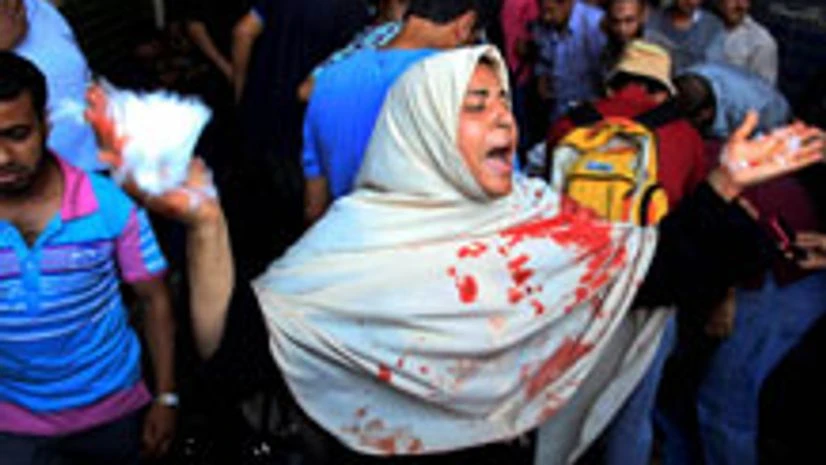Religious parties in Egypt like the Freedom and Justice Party of ousted President Morsi may face dissolution while the ban on deposed dictator Hosni Mubarak's party could be revoked under a proposed new constitution that seeks to overhaul the country's political system.
A 10-member technical committee handed over the amended draft yesterday to Egypt's interim president Adly Mansour after a month of deliberations and revisions.
The committee opted to change Article 6 to impose an outright ban on the formation of political parties based on religion or on mixing religion with politics.
More From This Section
The committee also ruled in favour of eliminating the Shura Council, parliament's upper house, and lifting a ban that prevented leading officials of Mubarak's defunct National Democratic Party from exercising political rights, including running in elections.
"Stripping citizens of their political rights must be instituted through judicial order rather than by the national charter," Committee member Magdi El-Agati was quoted by Al-Ahram as saying.
The draft states Islamic sharia as the main source of legislation. The committee, however, decided that Article 219, which gives various interpretations of Islamic sharia, be revoked.
Article 219 was added by the Islamist-dominated constituent assembly in 2012 under the rule of the Muslim Brotherhood.
Under the draft constitution, Egypt will have a hybrid rule that is closer to a parliamentary system, with the President and Prime Minister sharing powers, the presidential adviser for constitutional affairs said.
For the first time, an individual-candidate system will be used in the parliamentary elections and the government will be formed by the party which achieves majority in the parliament and, said Ali Awad.
Meanwhile, Egypt's interim presidency said it will announce the 50-member committee, representing all layers of society "within days" to discuss the draft.
The 2012 constitution was suspended as part of the Egyptian armed forces' roadmap for Egypt's future following Islamist president Mohammed Morsi's ouster on July 3 amid mass protests against him.
Following Morsi's overthrow, Mansour created a 10-member committee consisting of six judges and four constitutional law professors.
The second committee, composed of 50 public figures, will be given 60 days to review the amendments before the constitution is put to a national referendum, which will then be followed by parliamentary elections.

)
